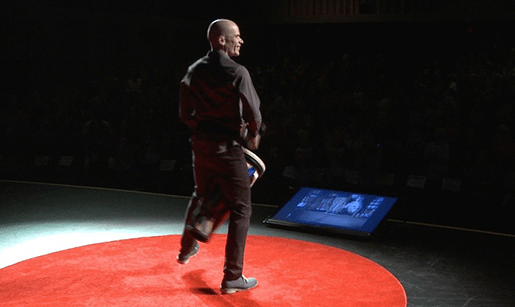The Power of “Not Yet”

Carol Dweck, Ph.D. wrote a book that has had a huge impact on me and my family. In Mindset: The New Psychology of Success, she articulates two mindsets. A fixed mindset and a growth mindset. Those with a fixed mindset tend to believe that abilities are fixed and unable to change. Those with a growth mindset believe abilities can be developed. A fixed mindset person might say “I can’t_____.” A growth mindset person might say, “I can’t _____ YET.”
In my opinion, Dweck’s book is a must read for any parent, teacher or coach. But, even if you don’t fall into one of these categories, there is a lot that Mindset can offer to adults who want to reach for a better version of themselves.
The reason that I wanted to share about this book is that a LOT of the work that I do involves convincing others that they CAN, in fact, make music. I hear things like this all the time:
I am not musical.
I don’t have any musical talent.
I can’t sing.
I have no rhythm.
The list goes on and on. As a board-certified music therapist, I KNOW what a powerful impact that music can have on the brain and body. So, I’m often having to respond to the above statements with my own, “not yet.”
There really is no excuse for not making music. It’s too accessible, and too good for you not to. You just have to deal with the BS story in our culture that you have to sing well or play well in order to sing or play AT ALL. If you want to get started with making music but you’re not sure where or now to start, one thing I recommend is checking out rhythmic instruments.
We’ve been playing and banging on instruments for a long time, right? Not only that but in our everyday lives, we perform many actions that mimic the act of playing percussion without giving it a second thought.
Go ahead and scratch your arm.
There…did you feel that? You just scratched in perfect rhythm!
Seriously, every time you scratch an itch, you move your hand back and forth in perfect rhythm. Now, put a small shaker in your hand, like the shakers they make to resemble eggs or fruit, and make the same motion. I’d venture to guess that you’ll shake it in the same kind of perfect rhythm.
You can make that sound over the top of any recorded or live music, and you’re jamming!
Have you ever bounced a ball? You can drum on a djembe or any other similar shaped drum.
Have you ever knocked on a door or hammered a nail? Perfect. You’re fully qualified to play a buffalo drum.
You already have all the muscle coordination and muscle memory you need to play drums or percussion recreationally, without a single lesson.
I know this because I have literally worked with thousands of patients and clients, helping them make music when they never thought they could. This is especially important if you are experiencing chronic stress and/or health problems. Which is why I was the guy that the palliative care team would call when they ran out of options with their patients.
If you’d like to learn more about how to use music to relax, click HERE to download my Music Medicine Guide. I originally created it for patients in the cancer center I worked in. But it has information that can be useful to ANYONE who wants to learn to use music to relax or improve health outcomes.
And remember….anytime you find yourself saying, “yeah but I’m not the musical type…” Just add those two little words – NOT YET.
“Yeah but I’m not the musical type…..not yet.”


I have to say, Carol’s book had a great impact on me as well. I love your description of scratching in perfect rhythm! Who knew? Absolutely great info. Thanks!
Perhaps we “scratch” to our heart beat; which is always perfect.